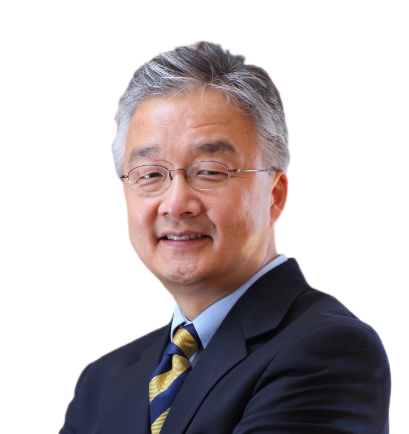|
|
| 哈佛医学院教授Luke P. Lee讲述通过SANDS、OBET、EXODUS和脑类器官MAP的纳米医学 |
|

直播时间:2024年6月21日(周五)20:00-21:30
直播平台:

科学网APP
https://weibo.com/l/wblive/p/show/1022:2321325047709349577279
(科学网微博直播间链接)

科学网微博

科学网视频号
北京时间2024年6月21日晚八点,iCANX Talks 第191期邀请到了哈佛医学院Luke P. Lee教授进行分享!此外,上海交通大学Xianting Ding,国家纳米科学中心Hai Wang,成均馆大学Miso Kim,北京大学Haixia Zhang等教授担任嘉宾,南方科技大学Xingyu Jiang教授担任主持人。
这将是一场汇聚顶尖学者的盛会,共同探讨前沿科技与学术挑战!更多精彩,敬请期待!
【嘉宾介绍】

Luke P. Lee
哈佛医学院
Nanomedicine via SANDs, QBET, EXODUS, and Brain Organoid MAP
【Abstract】
In this talk, I will present smart SANDs (Speedy Analytical Nano-optofluidic Diagnostic systems) to predict and stop the spread of infectious diseases. Smart SANDs refer to advanced molecular diagnostic systems consisting of three primary components: (1) a self-contained on-chip sample preparation and liquid biopsy process, (2) an ultrafast plasmonic amplification method for DNA, RNA and protein biomarkers, and (3) a smartphone optical system interface. Furthermore, nanoplasmonic optical antennas permit QBET (Quantum Biological Electron Transfer) imaging to detect ET dynamics in mitochondrial cytochrome c in living cells. The non-invasive real-time QBET spectroscopic imaging of ET in live cells can open a new era in life sciences since it captures spatiotemporal ET dynamics in live cells. Nanoplasmonic optical antennas can also capture the secret communication codes of the bacterial extracellular vesicles (EVs) to understand better the mechanisms of bacterial communication, pathogenesis, and drug resistance.
I will also discuss how human EVs have emerged as a new paradigm in diagnostics and therapeutics, and the recent progress of EV-based applications of EXODUS (EXOsome Detection via the Ultrafast-purification System). Since the EXODUS by harmonic resonator generates high speed, purity, and yield via automated label-free purification of exosomes from various biofluids, it produces the most sensitive detection of liquid biopsy (from blood, tears, urine, or saliva). For example, the significantly improved purification of exosomes from urine samples of cancer patients enables us to obtain efficient multiomics and compare enriched pathways of kidney and bladder cancer. We also developed iTEARS (integrated Tear Exosome Analysis via Rapid-isolation System) to identify biomarkers of proteins and miRNAs and to see the world of diseases in a drop of tears. EXODUS-based iTEARS can provide a solution to identify numerous other diseases, including infectious diseases, neurodegenerative diseases, and cancers.
For personalized precision nanomedicine, I will present the development of brain organoid MAP (Microphysiological Analysis Platforms) with quantum biosensors and therapeutic modulations of mitochondrial electron transport chains. Human-induced pluripotent stem cells-based brain organoid MAP provides an ideal model to address fundamental questions of neuropathogenesis and find solutions for neurodegenerations. In addition, patient-derived brain organoids can recapitulate patient responses and help personalized medicine. Smart SANDs, QBET, EXODUS, and brain organoid MAPs will impact quantitative life sciences and precision nanomedicine via the convergence of biology, chemistry, physics, and engineering.
在这次演讲中,我将介绍智能SANDs(快速分析纳米光流体诊断系统),以预测和阻止传染病的传播。智能SANDs指的是由三个主要部分组成的先进分子诊断系统:自包含的芯片上样本制备和液体活检过程,用于DNA、RNA和蛋白质生物标志物的超快等离子体放大方法,以及智能手机光学系统接口。此外,纳米等离子体光学天线允许通过量子生物电子转移(QBET)成像来检测活细胞中线粒体细胞色素c中的电子转移(ET)动态。活细胞中ET的无创实时QBET光谱成像可以开启 的新时代,因为它捕捉了活细胞中的时空ET动态。纳米等离子体光学天线还可以捕捉细菌外泌体(EVs)的秘密通信代码,以更好地理解细菌通信、致病机制和耐药性。
我还将讨论人类外泌体如何成为诊断和治疗的新范式,以及基于外泌体的EXODUS(通过超快速纯化系统检测外泌体)应用的最新进展。由于EXODUS通过谐振器产生高速、纯度和产量,通过自动化无标记的外泌体纯化系统从各种生物流体中分离外泌体,它提供了最敏感的液体活检检测(来自血液、眼泪、尿液或唾液)。例如,从癌症患者的尿液样本中显著改进的外泌体纯化使我们能够获得高效的多组学数据,并比较肾脏和膀胱癌的富集途径。我们还开发了iTEARS(通过快速分离系统整合泪液外泌体分析),以识别蛋白质和miRNA的生物标志物,并在一滴眼泪中看到疾病的世界。基于EXODUS的iTEARS可以提供一种解决方案,以识别包括传染病、神经退行性疾病和癌症在内的许多其他疾病。
对于个性化精准纳米医学,我将介绍带有量子生物传感器和线粒体电子传递链的治疗调节的脑类器官MAP(微生理分析平台)的开发。基于人类诱导多能干细胞的脑类器官MAP为解决神经病理学的基本原理问题和寻找神经退行性疾病的解决方案提供了理想的模型。此外,来自患者的脑类器官可以再现患者的反应,并帮助个性化医疗。智能SANDs、QBET、EXODUS和脑类器官MAP将通过生物学、化学、物理学和工程学的融合,影响定量 和精准纳米医学。
【BIOGRAPHY】
Luke P. Lee is a Professor at Harvard Medical School. He received his BA in Biophysics and Ph.D. in Applied Physics and Bioengineering from UC Berkeley. He joined the faculty at UC Berkeley in 1999 after more than a decade of industry experience. He became the Arnold and Barbara Silverman Distinguished Professor and the Lester John and Lynne Dewar Lloyd Distinguished Professor at Berkeley. He also served as the Chair Professor in Systems Nanobiology at ETH Zürich. He founded the Biomedical Institute for Global Healthcare Research & Technology (BIGHEART). He served as Associate President for InternationalResearch and Innovation and Tan Chin Tuan Centennial Professor at the National University of Singapore. He also founded the Institute for Quantum Biophysics at Sungkyunkwan University, Korea. He has authored over 350 research articles, contributed to four book chapters, and holds 60 internationalpatents. He mentored over 100 undergraduate students, 31 Ph.D. candidates, and 37 post-doctoral fellows, producing 37 faculty members at different universities. He has been honored as a Fellow of the Royal Society of Chemistry and the American Institute of Medical and Biological Engineering. He has also received various awards, such as the IEEE William J. Morlock Award, NSF Career Award, Fulbright Scholar Award, and the HoAm Prize.
Luke P. Lee 是哈佛医学院的教授,他在加州大学伯克利分校获得了生物物理学学士学位和应用物理学及生物工程博士学位。在拥有超过十年的工业界经验后,他于1999年加入了加州大学伯克利分校的教职。他成为了伯克利的阿诺德和芭芭拉·西尔弗曼杰出教授以及莱斯特·约翰和琳恩·德瓦尔·劳埃德杰出教授。他还曾担任苏黎世联邦理工学院系统纳米生物学的主席教授。他创立了全球健康研究与技术生物医学研究所(BIGHEART)。他曾任新加坡国立大学的国际研究与创新协会副会长和陈振传百年纪念教授。他还在韩国成均馆大学创立了量子生物物理研究所。他撰写了超过350篇研究文章,为四本书撰写了章节,并持有60项国际专利。他指导了100多名本科生、31名博士生和37名博士后研究员,培养了37名不同大学的教师。他被授予皇家化学学会会员和美国医学与生物工程学会会员的荣誉。他还获得了多项奖项,如IEEE威廉·J·莫洛克奖、NSF职业奖、富布赖特学者奖和何安奖。
特别声明:本文转载仅仅是出于传播信息的需要,并不意味着代表本网站观点或证实其内容的真实性;如其他媒体、网站或个人从本网站转载使用,须保留本网站注明的“来源”,并自负版权等法律责任;作者如果不希望被转载或者联系转载稿费等事宜,请与我们接洽。